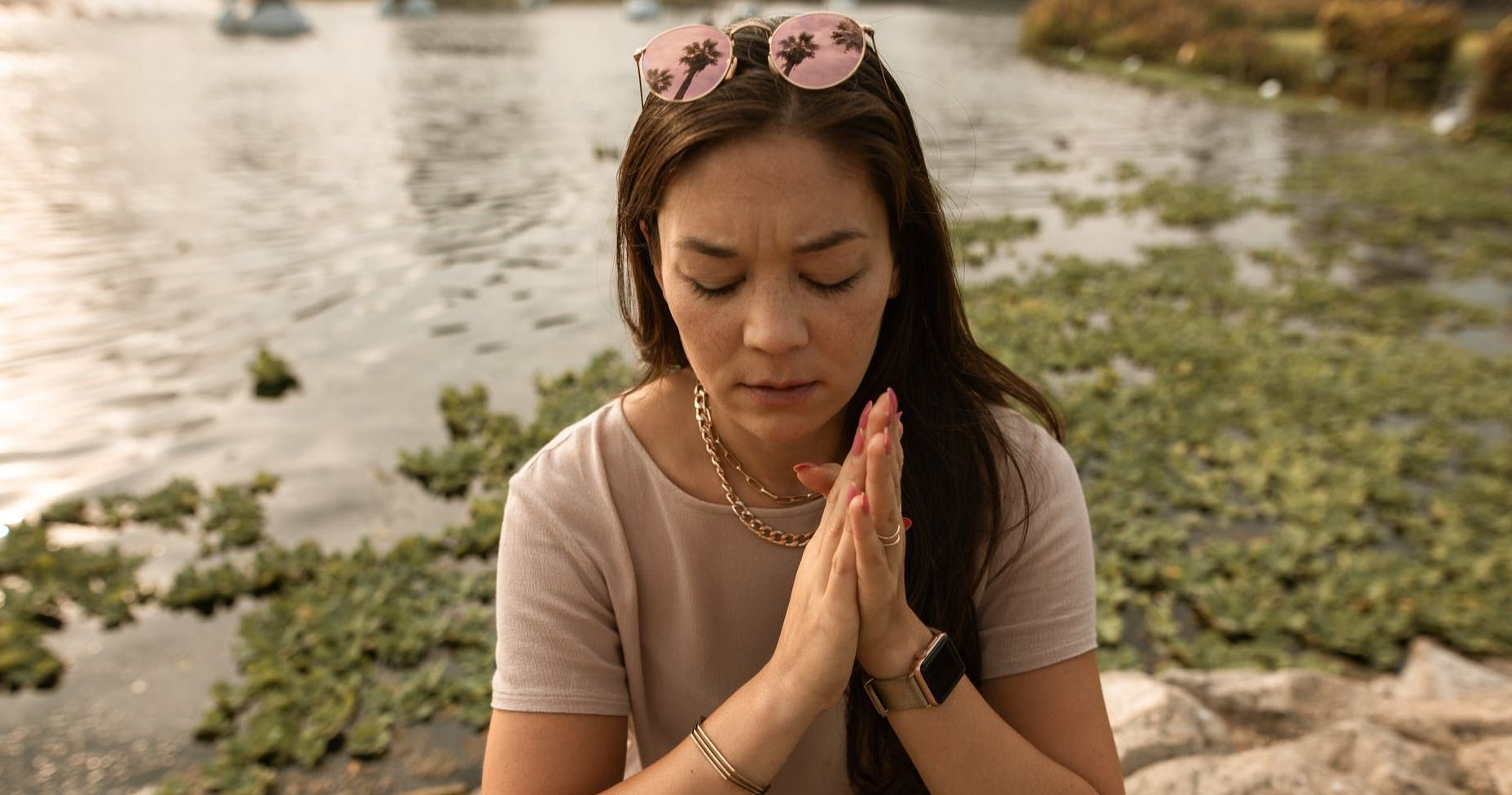How to know if you have social anxiety
If social situations make you nervous, you might be wondering if you have social anxiety. Although it is perfectly normal to feel nervous in certain social situations, like giving a big presentation at work or going out on a first date, people who feel this way about everyday interactions may have a chronic mental health condition known as social anxiety disorder.
Let’s take a closer look at how you can tell if you might have social anxiety and what you can do about it. Also, find out when and why to consider therapy.
What is social anxiety disorder?
This is a common anxiety disorder that causes you to feel the symptoms of anxiety or fear in social settings. You may have trouble meeting new people, talking to others and attending social gatherings thanks to a strong fear of being scrutinized by others.
The Anxiety & Depression Association of America reports that roughly 15 million American adults suffer from social anxiety disorder, making it the second most common anxiety disorder behind specific phobias.
What are the symptoms of social anxiety disorder?
If you’re wondering how to understand if you have social anxiety disorder, it helps to take a closer look at its psychological and physical symptoms.
Psychological symptoms of social anxiety disorder
- You worry about embarrassing yourself in social situations
- You worry intensely about attending social situations, possibly for days or even weeks ahead of the event
- You miss work or school because of anxiety about it
- You avoid social situations or do your best to blend into the background at those you cannot avoid
- You worry that others will notice your nervousness or stress
- You have a deep sensitivity to criticism
- You feel like you need to drink alcohol or take drugs to relax before interacting with others
Physical symptoms of social anxiety disorder
If you have social anxiety disorder, you may experience the following physical symptoms when you’re in social situations or when you think about them:
- Trembling or shaking
- Lightheadedness or dizziness
- Rapid heartbeat
- Feeling nauseous or sick to your stomach
- Blushing
- Feeling your mind “going blank”
- Excessive sweating
- Trouble speaking
- A rigid body posture or muscle tension
Avoiding activities
The constant fear of being judged by others or embarrassed in front of people often leads people with social phobia to avoid some or all of the following social situations:
- Going to work or school
- Starting conversations with others
- Making eye contact
- Calling people on the phone
- Walking into a room where others are already seated
- Asking questions
- Shopping, asking for help in a store, or making returns
- Eating in public
- Using public bathrooms
Social anxiety vs. introversion
It is important to understand that social anxiety and introversion are not the same. Introversion is a personality trait, not a mental health condition. A person who draws their energy from within and enjoys isolation and solitary pursuits is an introvert, and these people find happiness in spending time alone and often appear reserved.
If you have social anxiety, you are not keeping to yourself because you actually enjoy solitude – you are doing it because you are nervous about how others will receive you. Introverts and extroverts alike can suffer from social anxiety.
Likewise, it is helpful to know if you have social anxiety or shyness. A shy person might prefer communicating online, stay close to those they know well in social settings and feel nervous before public speaking, but shyness typically eases as you feel more comfortable around people.
Although it can be challenging to understand these differences, there are several criteria that are used to diagnose social anxiety disorder. In addition to the aforementioned constant fear of social situations because of a fear of embarrassment or humiliation and feeling anxious ahead of social interactions, anxiety that disrupts your daily living and/or the realization that your fears about social situations are unreasonable also point to social anxiety.
The causes of social anxiety disorder
Scientists are not sure what causes social phobia, but research indicates that a combination of genetics and environmental factors could be at play. Although anxiety disorders run in families, researchers are not sure whether children who develop an anxiety disorder that their parents also have are doing so because of genetics or because they have learned the behavior of those parents.
A serotonin imbalance or other physical abnormalities may also contribute to this condition. It is also believed that an overactive amygdala, the part of the brain that controls anxious thoughts and fear response, could play a role.
In addition, negative experiences such as familial conflict or bullying may also contribute to the disorder. Misreading other people’s behavior might also cause or exacerbate social anxiety.
How is social anxiety disorder treated?
If you are wondering how to overcome social anxiety, there are several approaches that can help. These include talk therapy, medication and lifestyle changes.
Lifestyle changes
One thing that you can do right away to take the edge off of anxiety is avoid caffeine in foods like chocolate, soda and coffee. Caffeine is a stimulant that may increase your anxiety, and you may find that you feel less on edge if you cut out caffeine.
It is also important to ensure that you get at least 8 hours of sleep per night because a lack of sleep can intensify social phobia symptoms. You can also practice relaxation and breathing exercises when your symptoms strike.
Medication
Psychiatric medications like antidepressants and anti-anxiety medications cannot cure social anxiety disorder, but they are sometimes prescribed to those whose condition does not improve with lifestyle changes and therapy.
It can take several months for them to work, and it is important to keep in mind that they come with side effects such as weight gain, upset stomach, insomnia and a decreased sexual desire.
Other Remedies
Remedies such as aromatherapy, herbal teas, Organic CBD Nugs, or herbal compounds have been used through the ages to aid with relaxation and reduce the production of stress chemicals. People try remedies due to many reasons, such as to avoid detrimental side effects they experience with anti-anxiety medications.
However remedies can have side effects too and some remedies, such as St Johns Wort, can also have negative interactions with medications you may be taking. Therefore it is important to consult with a doctor before trying any alternative treatments.
Therapy
There are few types of therapy that are effective for social anxiety disorder. One of the most common is cognitive behavioral therapy (CBT), which helps you learn how you can control your anxiety with breathing and relaxation and teaches you methods of replacing your negative thoughts with more positive ones.
Many people with social anxiety use a type of negative self-talk known as cognitive distortions that bend reality and feed anxiety, such as overgeneralization, all-or-nothing thinking, and personalization. CBT can help you counter this negative self-talk, and a study published in the journal Cognitive Therapy and Research found that it can be particularly effective for anxiety.
Another option is exposure therapy, which helps you learn gradually how to face social situations instead of avoiding them. Group therapy is sometimes used to help you learn the social skills needed to interact with people and improve your confidence in social settings.
By participating in group therapy alongside other people with the same fears, you may feel more comfortable practicing the social skills you are taught using approaches such as role playing.
However, one type of therapy that many people with social anxiety prefer is online therapy because it does not require visiting an office in person and interacting with receptionists, public transport and other social anxiety triggers.
You can get online therapy from the comfort of your home and talk to a licensed therapist in an environment where you feel safe without the fear of judgment. Your therapist might also suggest that you keep a journal to spot cognitive distortions and identify your progress over time.
Don’t wait to get help
If you believe you could be suffering from social anxiety disorder, get help right away. Like many mental health conditions, it can become harder to treat if you wait.
All approaches take some time to work, and the sooner you reach out to a therapist, the sooner you can be on a path toward better social functioning, greater confidence and self-esteem, and more rewarding interactions with others. You can talk to a therapist online, from your home, on such therapy sites like Calmerry.
Kate has a B.S. in Psychology and an M.A. in Clinical Psychology from Pepperdine University and has been working in healthcare since 2017. She mainly treated depression, anxiety, eating disorders, trauma, grief, identity, relationship, and adjustment issues. Her clinical experience is focused on individual and group counseling.
Follow Kate here: https://www.linkedin.com/in/kate-skurat-5348381b9/

